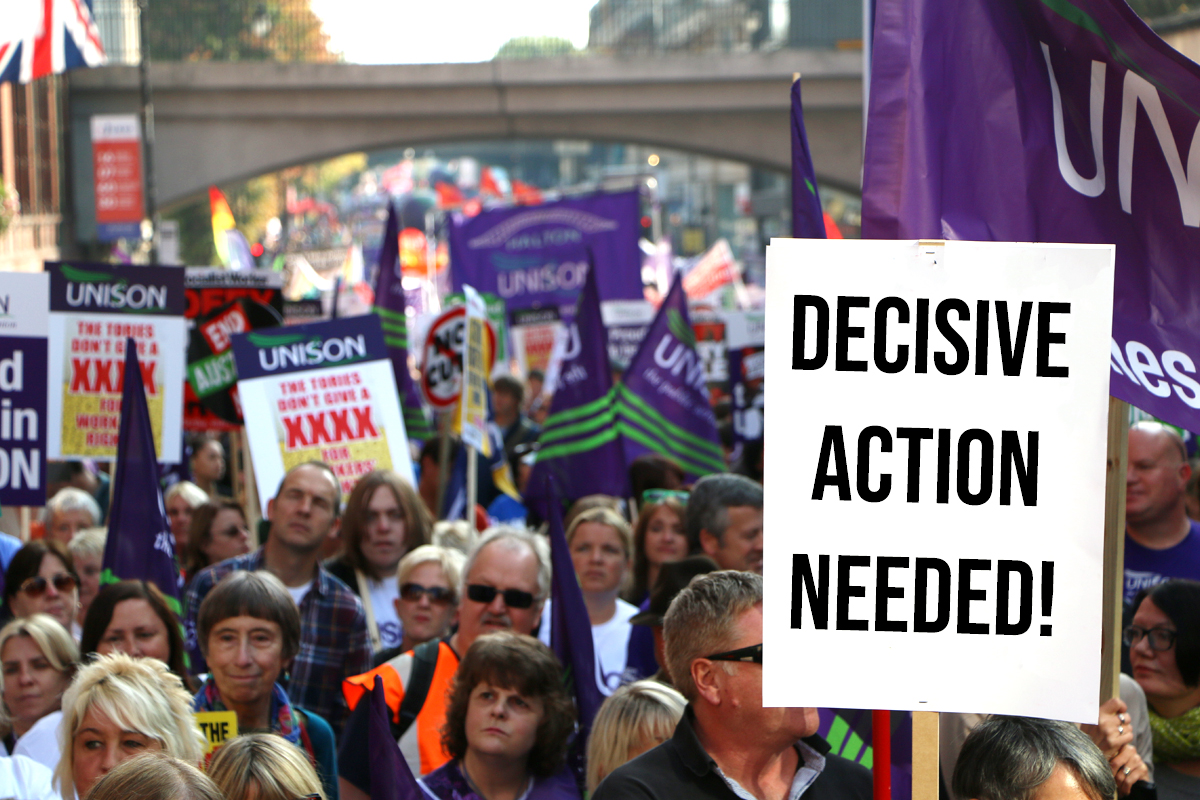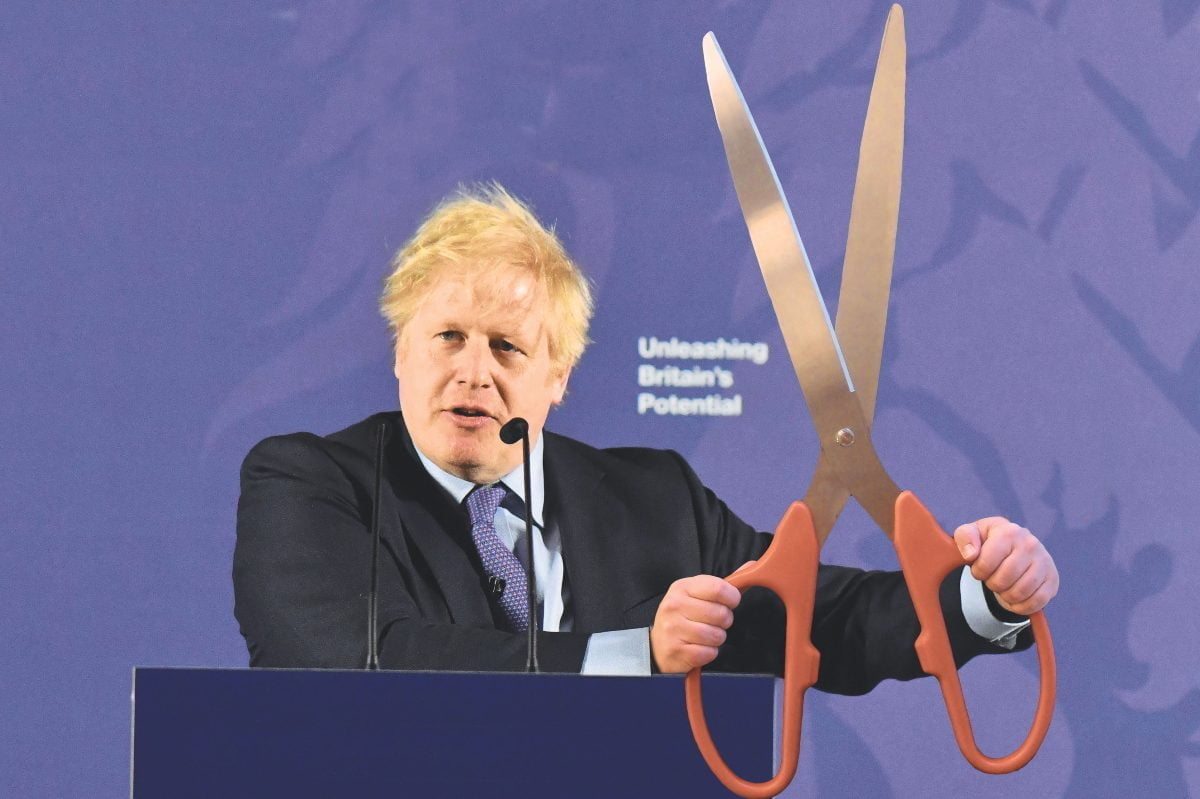Recently announced government proposals for ‘levelling up’ are another case of Tory bluff and bluster, with no genuine plan for tackling regional disparities. For real investment in deprived areas, we need public ownership and socialist planning.
Michael Gove, the newly-appointed ‘Secretary of Levelling Up’, recently delivered a long-awaited white paper outlining the government’s concrete plans to address the entrenched regional inequalities across Britain. Unsurprisingly, the concrete hadn’t quite set.
Upon release, Gove’s proposals immediately faced a wave of criticism for being little more than a set of lofty ambitions to dangle in front of voters – with neither the cash nor a detailed road map to actually make them a reality.
Once again, it’s clear that the Tories have nothing to offer but bluff, bluster, and broken promises.
False promises
 The government’s new document on ‘levelling up’ promises £4.7 billion spread across four pots of money: the Future High Streets Fund; the Community Renewal Fund; the Towns Fund; and the Levelling Up fund.
The government’s new document on ‘levelling up’ promises £4.7 billion spread across four pots of money: the Future High Streets Fund; the Community Renewal Fund; the Towns Fund; and the Levelling Up fund.
Instead of offering any solution, however, the funds allocated by Gove’s department have inequality baked into them.
According to analysis by The Guardian, the wealthiest parts of England have so far been allocated 10 times more money per person than the poorest parts.
While eight local authorities amongst the poorest in England are to receive less than £10 per head, for example, Sajid Javid’s constituency – Bromsgrove in Worcestershire – will receive roughly £148 a head, despite it being one of the wealthiest areas in the country.
Another example is Central Bedfordshire, partly represented by Tory culture secretary Nadine Dorries, which has received £91 per capita. Far from being left behind, this area ranks among the top fifth of local authorities in terms of affluence.
As usual, in other words, any money that the Tories dish out goes straight into the pockets of their chums, cronies, and wealthy supporters.
Class divide
 Boris Johnson’s slogan of ‘levelling up’ is therefore nothing more than a cynical response to a real issue of inequality.
Boris Johnson’s slogan of ‘levelling up’ is therefore nothing more than a cynical response to a real issue of inequality.
Importantly, the Tories refuse to ask the question that gets to the root of the problem: Why is there such a divide in Britain – between different regions, but above all between the rich and the poor?
The answer lies in British capitalism’s century-long decline, which has seen the country transformed from an industrial powerhouse (the ‘workshop of the world’) to a scelerotic ‘rentier’ economy, based on low wages, low investment, low productivity, and financial speculation.
Whilst the bankers and bosses have seen their wealth soar upwards, the working class across Britain has suffered generations of deindustrialisation under successive Thatcherite and New Labour governments, followed by the last decade of brutal austerity – including attacks on wages and conditions – overseen by the Tories.
The costs of this degeneration, meanwhile, have not been shared equally across society. Instead, all the burden has been placed onto the backs of the working class – both in the north and the south of the country.
Whilst the City of London has been lavished with handouts and support, former-industrial heartlands have been left to rot, seeing little-to-no investment in proper jobs and services.
Northern areas have been particularly affected by this collapse of Britain’s industry, and by years of cuts to public services.
But working-class communities in otherwise prosperous cities have also suffered the brutal effects of austerity. There has been no ‘trickle down’ from the high towers of finance to working-class Londoners.
The regional divide, in other words, is above all a class divide. And we know which side the Tories are on.
Workers under attack
 Today, British capitalism is facing its worst ever crisis, with the deepest economic slump in more than 300 years, and with stagnation set to continue for years ahead.
Today, British capitalism is facing its worst ever crisis, with the deepest economic slump in more than 300 years, and with stagnation set to continue for years ahead.
The government’s coffers are empty. Indeed, after pouring billions into the pockets of the bosses during the pandemic, in order to prop up big business, Britain’s national debt now sits at an eye-watering £2.2 trillion, equivalent to over 100% of UK GDP (the country’s annual economic output).
To solve the issues of regional inequality, what is needed is genuine investment in infrastructure, industry, and public services, in order to create decent jobs for all. But this is something that capitalism – particularly Britain’s notoriously short-termist, parasitic capitalism – cannot afford or provide.
Bosses will only hire workers if they can squeeze profits from them. And for those who can find employment, the laws and logic of capitalism mean that the bosses are forced to attack workers’ wages and conditions in order to remain competitive.
Such attacks have been seen across every industry and sector in Britain for decades now, leading to factory closures and council cuts, on one side; and a proliferation of low-paid, zero-hour, precarious work, on the other.
Alongside recently rampant inflation, the result is that workers in Britain have experienced the worst stagnation in real wages since the time of the Napoleonic Wars.
Logic of capitalism
 It is clear that ‘levelling up’ is not on the agenda for the working class. Instead, further austerity and attacks are the order of the day, as the bill for the coronavirus crisis is presented to the working class, the poor, and the youth.
It is clear that ‘levelling up’ is not on the agenda for the working class. Instead, further austerity and attacks are the order of the day, as the bill for the coronavirus crisis is presented to the working class, the poor, and the youth.
Under these conditions, the government’s promise of devolved mayoral powers – another key plank of their latest proposals – will simply mean outsourcing responsibility for carrying out cuts to local (Labour) politicians, councils, and representatives.
These anti-worker policies are not an ‘ideological’ choice, however; they are not simply the result of ‘nasty’ Tory or Blairite policies, with a penchant for cuts and privatisation.
Rather, these political decisions are the logical necessity of attempting to manage a crisis-ridden system whose only priority is profit. If you wish to maintain capitalism, then you must accept austerity and inequality. There is no nicer, kinder, greener version – only the one we see, red in tooth and claw.
This gets to the root of the problem with the Tories’ ‘levelling up’ plans: you cannot solve a systemic problem within the very system that created that problem.
Socialist plan
 We cannot trust the Tories – a government of the rich, for the rich, by the rich – to genuinely address the question of inequality, and all the scourges on society that this brings.
We cannot trust the Tories – a government of the rich, for the rich, by the rich – to genuinely address the question of inequality, and all the scourges on society that this brings.
To truly tackle regional inequalities, the labour movement must demand the nationalisation of the banks and big financial institutions, alongside the expropriation of the major monopolies and the wealth of the super-rich, in order to provide a rational socialist economic plan, under democratic workers’ control and management.
Only by abolishing the profit motive, ending the anarchy of the market, and taking power out of the hands of the billionaires and bosses can we ensure that the enormous wealth and resources in society are used to invest in quality jobs, housing, and public services for all.






